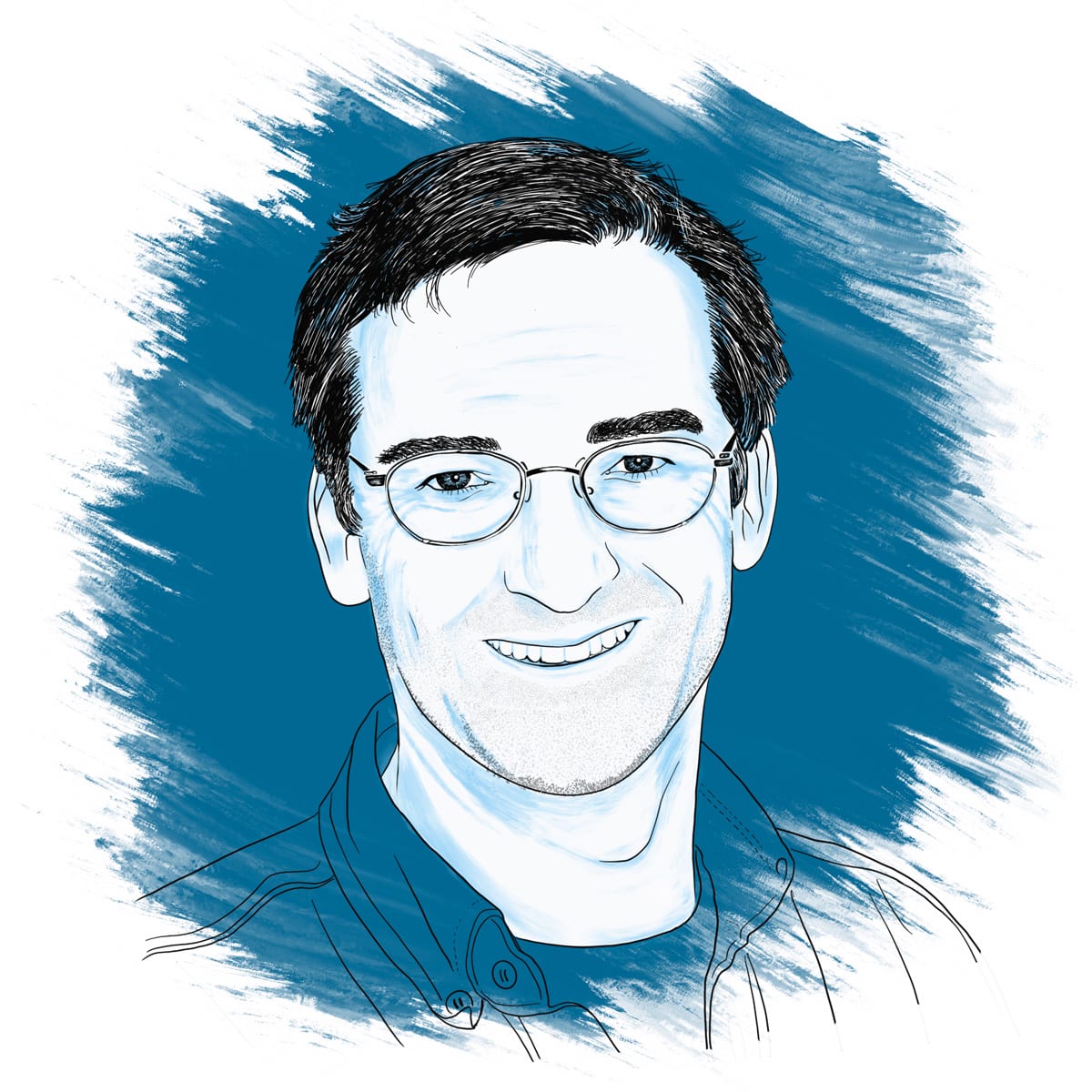To sail, not to drift

To sail, not to drift
WHOI Deputy Director Rick Murray plots a course for our future ocean
As interviewed by Ken Kostel
How do you envision the state of the ocean 50 years from now?
There’s almost certainly no way to reverse the course of big trends like ocean warming and sea-level rise or ocean acidification. I think we’ll see the biggest changes in two ways. First is how we as a global society will adapt. For example, fish will be caught in different areas—we’re already seeing this in New England, but this is happening elsewhere on a global basis. And as sea level rises, we will at some point need to engage in “managed retreat” from the sea, when mitigation approaches simply will not work to the degree necessary. Second, how do we harness the ocean to help us reduce our impacts on it? A good example here is offshore wind power or other energy sources. Let’s not forget the ocean covers 70% of the Earth’s surface, and there is a lot of opportunity there.
How do we remain hopeful, given current trends?
Over the course of the next 50 years, we’ll be approaching problems with a vastly improved knowledge base than we have over the past 50 years. And with this information comes better decision making. From the basic science perspective, we are making more—and better—oceanographic observations and measurements than ever before. From the perspective of fishing, aquaculture, wind power, and so on, the amount of data from satellites, long-standing observatories, new technology deployed by ships—it all means more information to inform our directions.
What will be the key scientific questions in oceanography?
The current trend throughout the ocean sciences has been toward increased breadth to tackle questions that require a broad perspective. That will continue to expand beyond the ocean sciences as the questions we address become a higher priority for society at large. You’ll probably see things like more material scientists and engineers bringing their unique approaches to problem-solving to bear on questions that are important to us. As far as the age-old debate between “pure” versus “applied” science, I think you’ll also see a shift.In reality, people are all just trying to solve problems, some of which have both aspects wrapped up in one.
Where do we need the biggest technical breakthrough?
This might not sound sexy, but power management is a critical bottleneck through which almost all of observational science flows. How do we extend the deployment time of our technology so that it gathers information continuously and seamlessly? Ocean observations are critical to everything we do, whether they be made from ships, satellites, buoys, undersea gliders, or any technology. This will require not just better batteries, but better software design, improved circuit design, more efficient mechanical design—the whole ball of wax. And this is will be even more important as another technological trend plays out, one toward miniaturization.
Where will funding for oceanography come from in 50 years?
I think you’ll see increased interest from the business community, particularly those that manage risk or that have a huge stake in minimizing risk. This covers everything, including the insurance industry, government, philanthropy, and so on. The players in pretty much every sector realize their success is inherently tied to improving our ability to predict what the ocean is going to do in the future. You’re already seeing this. Numerous business executives I talk to have a better grounding in climate science than many of my colleagues did 15 or 20 years ago. People know that understanding the ocean is integral to understanding climate. We need to take advantage of that interest and show them that our enterprise—knowledge- and capacity-building as it relates to a big chunk of our planet—is vital to their long-term viability and success. I think also that government investment will grow, and the pendulum will swing back in that direction.
What will WHOI look like and what will our role be in 2070?
I sincerely hope that our role in the future will be, as it is increasingly now, to inform serious discussion about big problems facing society and to guide the formation of priorities within the ocean science community. You’ll almost certainly see an emphasis on science-at-sea, but the way we conduct observational oceanography will probably be different, more automated and maybe less reliant on large, centralized platforms like ships. At the very least, we’ll be using ships differently…such as serving as a base for all sorts of equipment “flying” around them, dramatically extending their footprint. And we humans will still be required, but again in different ways as we orchestrate the use of the technology to answer the questions we pose.
